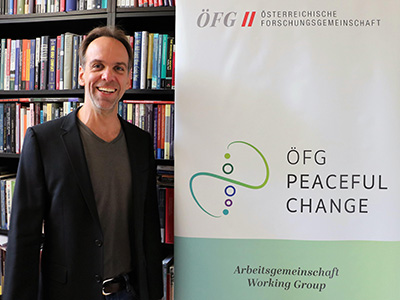ÖFG Working Group on Peaceful Change
 Today's world politics is characterized by two tendencies that have gained momentum in recent years: On the one hand, these are turbulent times. There are trade wars, rising concerns about climate change, a number of highly destructive internationalized civil wars, very high numbers of refugees and internally displaced people, increasing global arms expenditure, and the return of geopolitics. On the other hand, the ability of states and other actors to address these issues has declined drastically. Multilateralism is in a state of crisis.
Today's world politics is characterized by two tendencies that have gained momentum in recent years: On the one hand, these are turbulent times. There are trade wars, rising concerns about climate change, a number of highly destructive internationalized civil wars, very high numbers of refugees and internally displaced people, increasing global arms expenditure, and the return of geopolitics. On the other hand, the ability of states and other actors to address these issues has declined drastically. Multilateralism is in a state of crisis.
This project, generously funded by the Austrian Research Association (Österreichische Forschungsgemeinschaft - ÖFG), examines this tension by addressing a key question of International Studies: What fosters or hinders peaceful change? Inquiring into this question, we focus on processes of world ordering. What different functional and regional orders are there? How do they relate to one another and how does agency shape their production and re-production? How does peaceful change feature in these production and re-production processes?